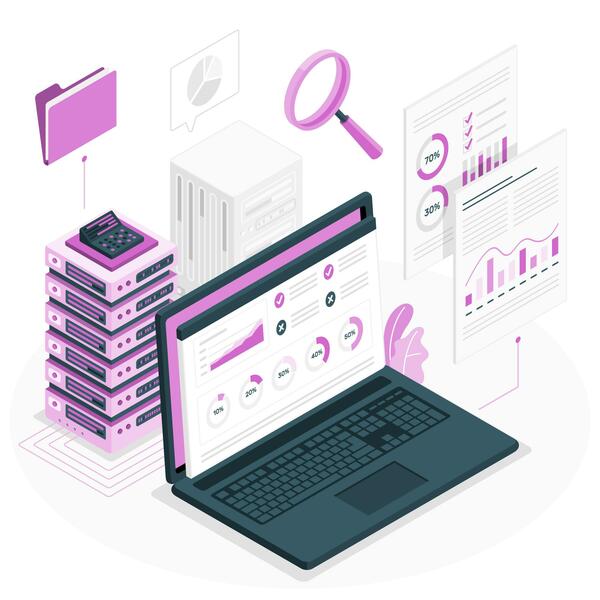In the intricate ecosystem of business operations, the convergence of finance and payroll management plays a pivotal role in steering organizational success. This crucial intersection is where strategic financial planning meets the day-to-day operational needs of workforce management, making effective payroll management indispensable. In India, where the business landscape is marked by rapid growth and evolving regulatory frameworks, leveraging advanced payroll solutions becomes beneficial and essential. Payroll software in India is at the forefront of this convergence, offering sophisticated tools that simplify complex processes and ensure compliance with local regulations.
The Vital Link Between Payroll and Business Finance
Payroll management extends far beyond the mere disbursement of salaries. It encompasses various financial obligations, including statutory compliance, tax deductions, benefits administration, and financial reporting. These elements represent significant financial transactions directly impacting a company's cash flow and financial health.
Effective payroll management ensures that these financial obligations are met accurately and on time, safeguarding the company against compliance risks and financial discrepancies. Moreover, payroll data provides invaluable insights into labor costs, which are often one of the largest expenses for businesses. This data is crucial for budgeting, financial planning, and strategic decision-making, highlighting the integral role of payroll management in a business's broader financial strategy.
Navigating Regulatory Compliance with Payroll Software
The regulatory environment in India presents a complex landscape of compliance requirements for businesses. From the intricacies of TDS (Tax Deducted at Source) calculations to the specifics of provident fund contributions and ESI regulations, businesses must navigate a maze of statutory obligations. Non-compliance can lead to severe penalties, legal complications, and company reputation damage.
This is where payroll software in India becomes an invaluable ally for businesses. Designed to cater to the specific regulatory requirements of the Indian market, the best payroll software automates compliance tasks, ensuring that all statutory deductions and contributions are accurately calculated and reported. This automation reduces the risk of human error. It keeps businesses updated with the latest regulatory changes, a crucial feature in a landscape where tax laws and labor regulations are subject to frequent amendments.
Enhancing Efficiency and Transparency
Payroll software's operational efficiency extends beyond compliance. Automating payroll processes streamlines operations, significantly reducing the time and resources spent on manual calculations and data entry. This efficiency gain allows businesses to redirect resources towards strategic initiatives, enhancing productivity and competitiveness.
Moreover, modern payroll solutions offer employee self-service portals where employees can access their pay slips, tax statements, and leave balances. This transparency improves employee satisfaction by providing clear and accessible information about compensation and deductions, fostering trust, and reducing queries to the HR and finance departments.
Strategic Insights and Financial Planning
The strategic value of payroll software in India lies in its ability to provide deep insights into payroll data. Advanced analytics and reporting capabilities enable businesses to analyze payroll expenses in detail, identify trends, and make informed decisions about compensation strategies, benefits offerings, and workforce planning.
For instance, analyzing overtime expenses across different departments can reveal inefficiencies or staffing shortages, prompting a review of workforce allocation or operational processes. Similarly, understanding the demographics and compensation trends within the organization can inform talent acquisition strategies and help maintain competitive compensation packages to attract and retain top talent.
Integration for Holistic Financial Management
The full potential of payroll software is realized when integrated with other financial and HR systems within the organization. This integration provides a unified view of financial and operational data, enabling a holistic approach to financial management.
Integrated systems facilitate seamless data flow between payroll, accounting, and HR, ensuring consistency and accuracy of financial records. This holistic view is essential for comprehensive financial reporting, tax planning, and strategic financial analysis, providing a foundation for robust financial management practices.
Future Directions: The Evolving Landscape of Payroll Software
As businesses in India continue to evolve in response to global trends and local challenges, payroll software is also undergoing rapid transformation. Emerging technologies such as artificial intelligence, machine learning, and blockchain are set to redefine payroll management, offering even more advanced capabilities for automation, data security, and predictive analytics.
These technologies enhance payroll systems' efficiency, accuracy, and strategic value, empowering businesses to navigate the complexities of finance and business management with unprecedented ease and confidence.
Empowering Businesses with Data Analytics
The future of payroll management is intricately tied to data analytics. Payroll management software is becoming increasingly sophisticated, offering businesses detailed insights into payroll expenses, employee demographics, and compensation trends. This wealth of data is a goldmine for strategic planning, allowing businesses to make informed decisions about everything from budget allocations to employee retention strategies.
For example, by analyzing payroll data, businesses can identify patterns such as high turnover rates in certain departments or roles. This insight allows for targeted interventions, such as enhanced training programs or improved benefits packages, to increase employee satisfaction and retention. Similarly, data on compensation trends can inform competitive salary structures, ensuring that businesses remain attractive to employers.
Streamlining Compliance in a Dynamic Regulatory Environment
Compliance remains one of the most compelling reasons businesses invest in payroll software. The regulatory environment in India is known for its dynamism, with frequent updates and changes to tax laws and employment regulations. Keeping up with these changes manually is labor-intensive and prone to errors.
Payroll software addresses this challenge by incorporating automatic updates to ensure compliance with the latest regulations. This feature is invaluable for businesses, ensuring they remain on the right side of the law without dedicating extensive internal resources to monitoring regulatory changes. Moreover, automated record-keeping and reporting functionalities simplify audit processes, providing businesses with peace of mind and freeing up time and resources for core activities.
Enhancing Employee Experience and Engagement
The evolution of payroll software also reflects a broader trend toward enhancing the employee experience. Modern payroll systems come equipped with self-service portals and mobile applications, giving employees instant access to their payroll information, including payslips, tax deductions, and leave balances. This level of transparency and accessibility is crucial for employee engagement and satisfaction.
Moreover, these platforms often include features for feedback and recognition, allowing employees to feel valued and connected, even in large or geographically dispersed organizations. As businesses in India continue to navigate the challenges of talent acquisition and retention, such features become critical components of an attractive employer brand.
Looking Ahead: The Integration of Payroll Software with Broader Business Systems
The next frontier in payroll management is integrating payroll software with broader business systems, including ERP (Enterprise Resource Planning) and HRM (Human Resource Management) systems. This integration promises a seamless data flow across departments, providing a unified view of financial and human resources information.
Such integration can significantly enhance strategic decision-making, offering a holistic view of the organization's operations and financial health. It enables businesses to make more nuanced decisions regarding investments, expansions, and workforce management based on a comprehensive understanding of their resources and costs.
Conclusion
The intersection of finance and business through effective payroll management is a dynamic and evolving space, particularly in India's vibrant business landscape. Payroll software in India is at the heart of this evolution, offering solutions that simplify compliance Penh, enhance operational efficiency, and provide strategic insights that drive business growth. As we look to the future, integrating payroll software with broader business systems and advancing technology promises even greater possibilities for strategic financial management and business success in India.
This continuation builds on the initial sections, delving deeper into payroll software's strategic benefits, including data analytics, compliance, employee engagement, and the potential for integration with broader business systems. To fully develop the article, consider incorporating case studies, testimonials, or expert insights that demonstrate payroll software's practical application and benefits in diverse business scenarios.



